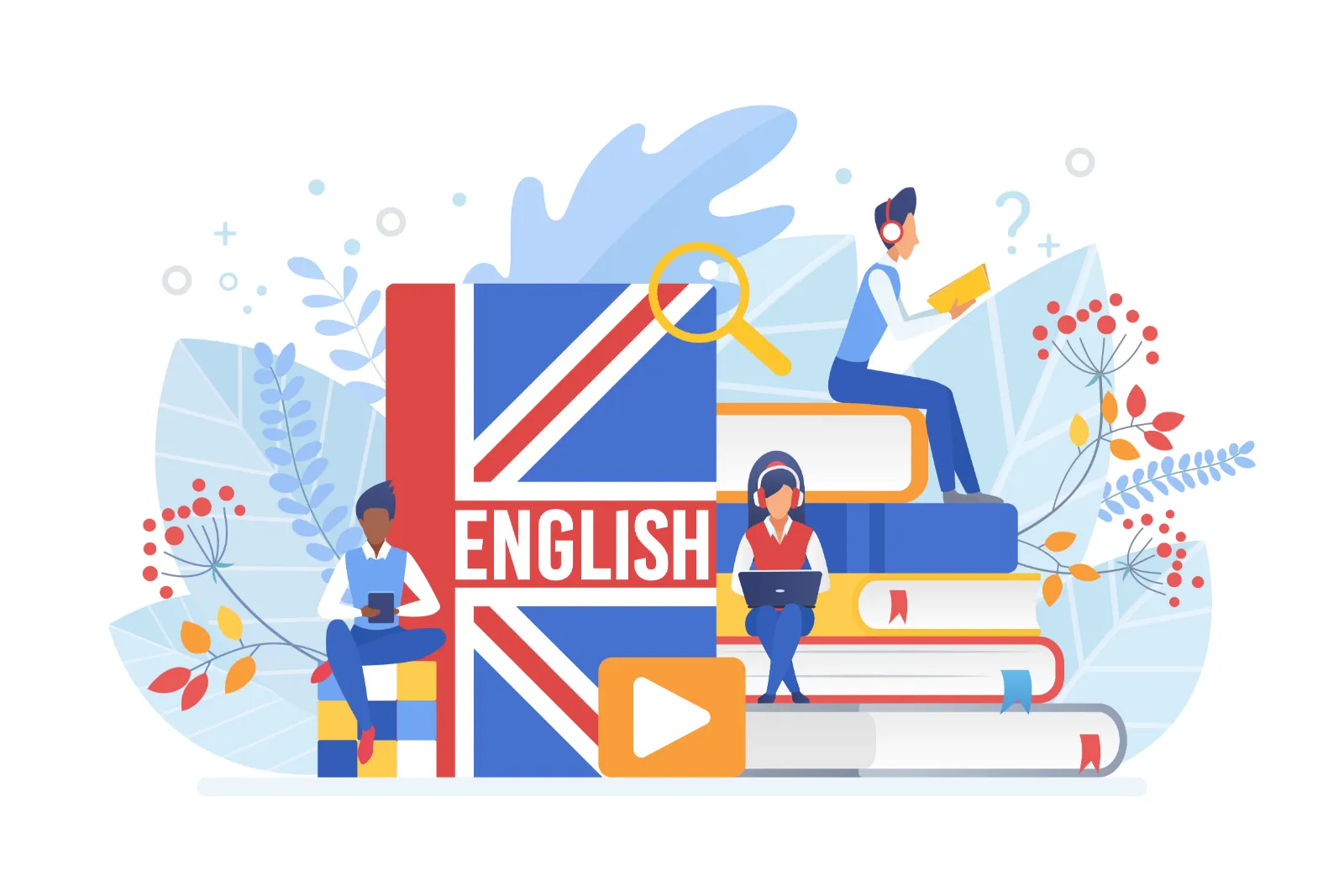| All | Blog | Videos | Webinars |

If you are reading this guide, then it is likely that you already have a grasp on the English language. However, you may be interested in expanding your knowledge further to become fluent.
To make it more accessible, click the translate button on the top of this page. Alternatively, you can download a widget from https://translate.google.com/.
Some readers may even be using Google Translate to better understand this guide, to find ways to learn English.
Also, all UK visa applications will require that you prove your knowledge of the English language through a test, or by providing proof you were taught a degree in English. The test is more relevant for this guide. Practising your English skills is important to make sure that you pass the test.
We will take you through some important considerations you should make when you practise and learn English, tell you some useful tools, and show you how we can help you get a visa.
Make sure you learn the right type of English
Before we discuss some of the best ways to learn English, we should mention the different types of English. Like with most languages, English has a number of variations from all around the world. From the original forms of English in the UK, to those spoken in Australia, the USA, India, and more.
One of the most important considerations is which version of English you learn. There are many dialects of English, with some being national, and many being regional. The differences will not always be big, but they can impact how you understand certain things and how you interact with people. For example, zucchini and courgette are both names for the same vegetable, but a British person will always know what ‘courgette’ means, with zucchini being more common in the US.
Another example of differences between varieties of English is the word ‘punting’. For a British person, it is a way of moving a small boat known as a ‘punt’, which is done by pushing against the river bed with a long stick. To an American, it is a strong kick.
When you come to the UK, you will want to be able to more easily understand what local people are saying, from British slang, to everyday words, to even some regional dialect words. Ensure that you learn British English, so you do not end up getting confused.
1. Language learning apps
Possibly the most popular way of learning and practising a language currently is through the use of language learning apps on phones. Many have free versions, and you can practise on the go with you always having access to your phone in your pocket.
The hardest thing will be choosing the best app for you. Duolingo is the most popular and accessible app with it treating learning a language like a game, but it is not as detailed as some of the other apps.
Many of the more detailed apps have a fee, such as Rosetta Stone. These types of apps provide many more varied learning materials, but they will cost you more.
You will need to consider what kind of app appeals to you, and what level of detail you want.
2. Take in English content
Whether you watch a TV show, a film, listen to a podcast, listen to music, or read a book, just taking the time to listen to how English speakers interact can help you understand how certain words are used in what context. This is a useful step to take before you consider practising English with native speakers.
With how widespread and popular media spoken in English is, you are bound to find something that appeals to you. For example, you could watch videos on YouTube, shows on Netflix, or listen to music on Spotify.
Make sure you turn subtitles on to help you understand what is happening, or read the lyrics of whatever song you are listening to.
If you decide to go with reading a book, you will need to make sure you find a story that suits the level of English you understand. With how many books there are, you might feel overwhelmed with choice and even unsure what genre you should go with. There are resources online to help you, such as a blog by Pearson on some good novels to help you improve your English.
Taking in media can be useful alongside language learning apps as a way of practising your understanding of English outside of an exclusively learning environment.
3. Talk to people
Possibly the best way to learn is by doing something. In this case, you should find people to talk to, such as a native English speaker or someone who is even fluent in English whilst not being a native speaker. If any friends or family of yours have a good knowledge of English, you could practise together.
Talking to someone who has a high understanding of the English language is a good way of receiving feedback on how you are using the language. It can help you build an understanding of what words to use in what context, how words are pronounced, and any other aspects of speech such as intonation.
4. Practise writing
Alongside talking to people, one of the best ways to learn English and practise is by writing down what you have learned.
For example, if you have learned some words and sentences from using an app, you could write them down a few times after so that they stick in your mind. This might help you remember what certain words mean.
You could also even try writing your own sentences to help you gain a better understanding and improve your memory of what different words mean. Then, you could get someone knowledgeable on the English language to give you feedback on what you have written.
5. Find a tutor
If you do not know anyone to practise with, you could get a tutor to guide you. This could be one of the best ways to learn English if you find someone who speaks your native language, as well as English, as they will be able to more easily communicate with you.
Even if you do have someone to talk to in English, you could still find a tutor, as they are likely to understand how to teach people and give more useful feedback on how to use English properly.
There will be a number of tutors online, so you can look around for one you like.
How we can help
As an immigration law firm, we can assist you in applying for your visa once you think you have a good enough grasp of the English language to do your test. We have a helpful guide on the English language requirement for a visa if you would like to learn more about the test and requirements.
Before our expert law team can help you, you will first need to tell us what you need help with. You can tell us what you need by either phoning us, emailing us, using our website chatbot, or by arranging a free 10-minute assessment. This allows our team to see if they can help you or not.
Once you have had your initial contact, you will be able to book a longer, paid consultation that lasts either 30 minutes or an hour. During this, you will be given advice by our Principal Solicitor, Nathan Woodcock. He will help you plan your next steps, and assist you with your case.
Get in touch with us today to see how we can help you.





